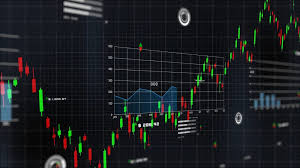
Exploring the Future: Trends in Crypto Trading Systems
In recent years, the world of finance has been rocked by digital innovation. At the forefront of this change is the rise of crypto trading systems, which are redefining how assets are bought, sold, and managed. These systems not only facilitate trades but also provide frameworks for the future of financial technology. For a deeper understanding of the implications of crypto regulation and mass adoption, you can learn more in this insightful article Crypto Trading Systems https://hackernoon.com/an-insight-from-coinpipes-founder-on-crypto-regulation-mass-adoption-and-b2b-solutions-for-crypto. As the market evolves, so too does the technology that supports it.
The advent of cryptocurrencies like Bitcoin and Ethereum has created a paradigm shift, paving the way for automated trading systems that leverage data analytics and machine learning. These new platforms enable both novice and experienced traders to make informed decisions based on market trends, historical data, and predictive algorithms. As we explore various trading systems, we uncover how they are poised to transform trading dynamics in profound ways.
The Development of Automated Trading Systems
Automated trading systems, or algorithmic trading platforms, utilize complex algorithms to execute trades at optimal prices. They can process vast amounts of market data in real-time, making swift decisions that would be impossible for a human trader to replicate. This is particularly advantageous in crypto markets, which are known for their volatility. The ability to respond quickly to price fluctuations can mean the difference between profit and loss.
In addition to speed, these systems can also operate 24/7, driven by the decentralized nature of cryptocurrencies. Unlike traditional stock markets, crypto markets do not close, allowing automated trading systems to capitalize on profit opportunities around the clock. This is a significant advantage for traders looking to maximize their returns in a market that rarely sleeps.
Key Features of Crypto Trading Systems
Successful crypto trading systems share several key features that enhance trading efficiency:
- Real-time Data Analysis: Access to live market data feeds enables traders to make timely decisions.
- Backtesting Capabilities: Traders can test their strategies against historical data to assess performance before committing real funds.
- Risk Management Tools: Features such as stop-loss orders and position sizing help mitigate risk.
- User-Friendly Interfaces: Intuitive designs make it easier for traders of all skill levels to navigate the platform.
The Rise of Decentralized Trading Systems

As the crypto ecosystem matures, decentralized trading systems (DEX) are gaining traction. Unlike traditional exchanges that require users to deposit funds into wallets controlled by the exchange, DEX platforms allow users to trade directly from their wallets. This shift toward decentralization is seen as a safeguard against hacks and exchange failures, issues that have plagued centralized platforms in the past.
DEX platforms such as Uniswap and SushiSwap rely on smart contracts to facilitate trades without a central authority. This not only enhances security but also offers greater access to various cryptocurrencies, including many lesser-known altcoins. Furthermore, the rise of decentralized finance (DeFi) has created an integrated ecosystem where users can lend, borrow, and trade, expanding the traditional role of trading systems.
Challenges Faced by Crypto Trading Systems
Despite their advantages, crypto trading systems are not immune to challenges. Crypto markets are susceptible to high volatility, regulatory uncertainties, and technological risks. Price swings can lead to significant gains, but they can also result in devastating losses. Additionally, the lack of regulatory clarity in many jurisdictions poses risks for traders and providers alike.
Furthermore, security remains a primary concern. Even with advances in blockchain technology, crypto exchanges and wallets have been vulnerable to hacks. Traders must consider security features when choosing a trading platform to ensure that their assets remain protected.
The Future of Crypto Trading Systems
As we look ahead, the future of crypto trading systems appears bright, driven by ongoing technological advancements and increased mainstream acceptance of cryptocurrencies. Artificial intelligence and machine learning are likely to play an even bigger role in the development of trading strategies, allowing systems to adapt and respond more intelligently to market changes.
Moreover, as financial institutions begin to embrace cryptocurrencies and blockchain technology, we can anticipate the emergence of hybrid systems that combine the strengths of both traditional finance and crypto trading. This fusion could lead to more standardized regulations, greater investor confidence, and improved user experiences.
Conclusion
Crypto trading systems are at the forefront of financial innovation, reshaping how assets are traded and paving the way for the future of finance. With the continuous evolution of automated trading, decentralized platforms, and the integration of advanced technologies, the landscape is ripe for transformation. While challenges remain, the potential benefits of these systems make them an exciting area to watch in the coming years.
In summary, the journey of crypto trading systems is just beginning. As they evolve, they will bring new opportunities and challenges to traders worldwide, driving the growth of the cryptocurrency market and influencing the broader financial ecosystem.
